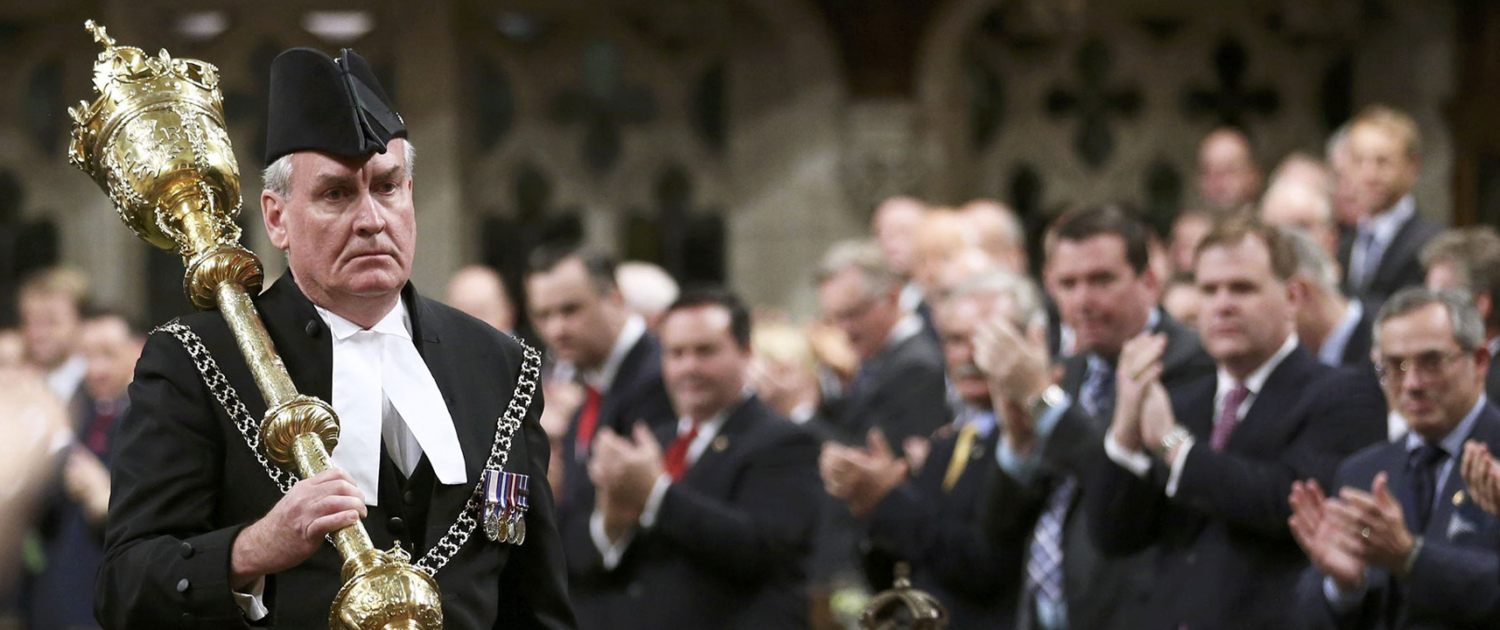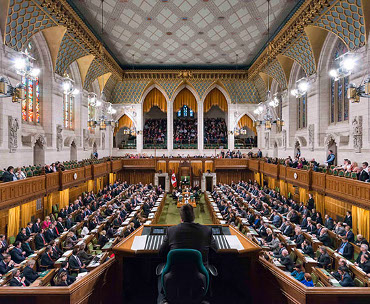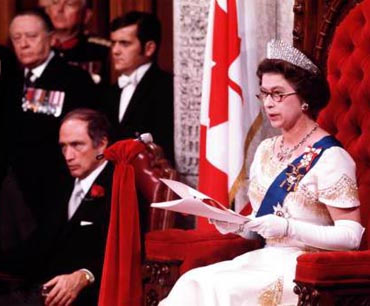How Our Canadian Monarchy Works Within the Constitution
You’ve probably played or watched a soccer or hockey game. To make sure that the players obey the rules of the sport so that both teams have a chance to win, there is always a referee – someone who doesn’t take sides but assures fair play and makes the difficult calls about penalties and off-sides. In many ways, The King’s role today is similar to that of a referee or umpire. Thus, we call our way of government “constitutional” monarchy.
Centuries ago, kings and queens were “absolute” monarchs: they ruled, and their personal word was law. This did not always seem fair to their people! Think back to when you were younger. A parent sometimes told you “Go to bed,” or “No, you can’t go out.” Probably you wanted to keep watching television, go to a movie or hang out at the park. But your folks’ word was “law.” However, you gradually grew up, and your parents slowly gave you more freedom. And they probably reminded you that with more freedom comes more responsibility.
In much the same way, as society evolved and wanted more freedom, and to have elected persons take on the responsibility of governing, many countries chose to become “constitutional” monarchies. This term means that the monarch’s first duty is to maintain the laws which elected members of a parliament have passed.
So the monarch now became not a ruler giving orders, but more like a referee, acting to preserve the rule of law, within the rules of the Constitution – a basic law which lays out how a country is governed. Just like the rules of baseball or lacrosse. The monarch cannot simply say “my way or the highway!” The ref can’t decide “I like Stephanie, so she can high-stick.” What could easily happen to a game played without a referee?
To symbolize our free and inclusive way of life in Canada’s democracy – which many throughout the world envy – our King or his representative must officially open each session of Parliament or a provincial legislature; and nothing approved by Parliament or a provincial legislature becomes law until it has received The Royal Assent. This is another way of making sure that “the rules of the game” (in this case, of our Constitution) are followed.
Canada’s Monarchy is important because it guarantees responsible government in our country. “Responsible government” means that a Prime Minister (or Premier, in the provinces) and cabinet only hold office so long as they have the support of the House of Commons or legislature, whose members the people have elected.
In this way, a Prime Minister or premier can never become a dictator, who says, “I am so popular that there is no need to have an election. The people love me. I will stay in office for the good of the country.” This, together with phony elections, actually happens in many countries around the world. The Crown would not permit this to occur in Canada, and would either cause an election to be held or the Prime Minister to be replaced.
Can you think why it would be dangerous for even an elected leader to hold all a country’s power?
So you might think of the Monarch and her vice-regal representatives acting as an Epi-Pen in our knapsack or school office, or a fire extinguisher or in our home, school or place of work. Most of us will never need to use these devices. But we’re very glad they are there! Their presence reminds us all of our responsibility for safety in respect of allergies and fire.
In the same way, these “reserve” powers of the Crown are seldom used; but the fact that they exist is a reminder to our leaders that Canada’s democracy expects them to play by the rules!
Here is a more detailed explanation of Constitutional monarchy suitable for older students.
Here is the text of the most important part of Canada’s written Constitution, The Constitution Acts 1867-1982



